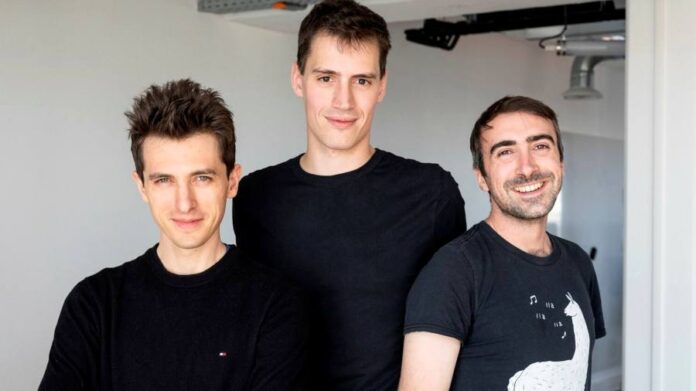In the good old days, a couple of years ago, a start-up in search of money would slap “crypto” or “metaverse” on their pitch deck before circulating to venture capital investors in eager expectation of success. In the frothy markets of 2021, “pretty much anyone with an email address could raise money”, one VC investor joked this week.
Nowadays, the crypto and metaverse labels have fallen out of fashion while generative artificial intelligence has triggered a fresh funding frenzy. This week, the month-old French start-up Mistral, yet to develop its first product, raised an eye-popping €105mn in Europe’s largest ever seed round. Mistral’s three founders aim to launch a European rival to OpenAI’s madly popular generative AI model ChatGPT next year.
When it comes to VC investment, it might therefore be tempting to think: same game, different label. Speculative VCs cannot stop themselves throwing money at anything hot with even the faintest trace of a financial pulse.
But that would overlook a radical shift in the operating environment for the VC industry over the past two years. The market cycle has swung wildly. The geopolitical backdrop has turned ugly. And, ironically, the euphoria over the transformative power of AI is itself piling up a mountain of investment doubt.
One of the punchiest arguments for the transformative power of AI has been made by the VC investor Marc Andreessen in his essay Why AI Will Save the World. Dismissing the moral panic that has accompanied the technology’s rollout, the combative Andreessen says that AI could be a “way to make everything we care about better”.
“AI is quite possibly the most important — and best — thing our civilisation has ever created, certainly on par with electricity and microchips, and probably beyond these,” he writes.
Such Silicon Valley excitability has encouraged a surge of investment into AI. Microsoft, which has invested heavily in OpenAI and is embedding generative AI services across its services, has forecast a big increase in revenues from the technology.
“The next generation AI business will be the fastest-growing $10bn business in our history,” Amy Hood, Microsoft’s chief financial officer, told investors this week.
But some investors argue that the big tech companies’ generative AI models will not necessarily capture most value because they are becoming increasingly commoditised and may be outcompeted by smaller open-source models. More money may be made by companies that have proprietary data in a particular industry and can leverage generative AI models to address specific use cases. “That is our investment strategy,” says Hemant Taneja, chief executive of the VC firm General Catalyst.
But VCs are also anxiously reviewing the valuations of their existing investment portfolios, given the disruptive impact it will have on all software businesses. Over the past few weeks, three start-up founders have told me they have had to junk their original business plans because of the launch this year of OpenAI’s more powerful GPT-4 model, rendering their use of earlier versions obsolete. Such is the speed of the technology’s evolution that start-ups and VCs are wary of betting too much on any one generative AI model for fear it will soon seem archaic.
This uncertainty comes at a time when some VCs, such as Insight Partners, are talking about a “great reset” in their industry and are scaling back their fundraising. Higher interest rates have undermined the viability of start-ups built on cheap capital. Born in the era of zero-interest-rate policies, these so-called “Zirp babies” now seem unlikely to grow up.
The sharp fall in private market valuations has also made it tougher for start-ups (and VCs) to cash in by floating on the stock market. VC fundraising, which soared to $171bn in 2022, has collapsed this year. US venture funds raised just $12bn in the first quarter, according to PitchBook.
Throw in some geopolitical turmoil and the future grows still mistier. Escalating US-Chinese tech rivalry has led the VC firm Sequoia Capital to split off its highly successful Chinese arm. The tragic war in Ukraine could yet spill over in alarming ways.
The good old days when VCs could thrive by adopting a “spray and pray” investment strategy and counting on a surging market to lift all valuations are over — even when it comes to AI. Investors are going to have to make smart, discrete bets in a time of technological turmoil and in a highly unpredictable world. But that, after all, is their job.
john.thornhill@ft.com
Credit: Source link















